Students at Gustavus Adolphus College often use the three-month summer break to get hands-on experience through internships, research, or study-away opportunities. This summer, a trio of students are getting their hands dirty too – while studying how changing agricultural practices might improve water quality in the Minnesota River basin.
Under the direction of geology and environmental studies professor Laura Triplett, the students are collecting samples, analyzing water clarity, and setting up new monitoring stations in the first year of a long-term project to study water quality in the Seven Mile Creek watershed.
“People, environment, climate, and culture all impact water quality,” Triplett said. “Gustavus is setting up for a five to 10-year project to explore how much water improvement we can get when farmers and homeowners try new approaches on their land.”

“We’re putting the puzzle together,” added junior biology and environmental studies major Jake Westfield. “We want to learn as much as we can about this watershed.”
The team collects samples from streams and creeks that are part of the Seven Mile Creek watershed, checking for water clarity on-site before returning to their lab in the Nobel Hall of Science to measure more aspects of water quality. Back on campus they filter the water to collect sediment and also measure concentrations of nitrate and E. coli bacteria. By taking water samples at different times of the day and after different weather patterns, they are building a database to analyze how streams vary based on time of year, amount of precipitation, and which farm management practices are used. The resulting knowledge will help inform future agricultural and land management practices to support clean river systems in southern Minnesota.
In addition to exposing the students to both lab and field science, the project has allowed them to collaborate with community and governmental groups working in the Minnesota River basin, including the U.S. Army Corps of Engineers, Nicollet County, the nonprofit Great River Greening, the Minnesota Pollution Control Agency, University of Minnesota researchers, and others.
“Getting first-hand experience out in the field has been incredible. Making connections with the community organizations has also been helpful as I explore what my career path might be,” junior geology major Caitlin Clause said.

“At Gustavus, we get to work to solve problems with our peers instead of competing for a grade,” senior geology major Connor Smith said. “The opportunity to work closely with a faculty member and get to know other students I wouldn’t have met is the best part of the summer research experience.”
“We catch each other’s mistakes and make sure we’re always using the correct methodology,” Westfield added.
Triplett, the trio’s research adviser, agrees. “I love the community aspect of science,” she explained. “People picture scientists sitting alone in a lab, but that’s not how environmental studies works. The team dynamic and energy that each student brings is what makes our project click.”
The project is funded by a $75,000 grant from the McKnight Foundation that allowed Triplett to hire student researchers, buy new monitoring equipment, and support the scientific research on clean rivers. The grant will also allow Gustavus to begin building research opportunities into regular classroom assignments during the academic year to expose more students to the project. Additional funding and support for the Minnesota River basin research came through the Margaret A. Cargill Foundation, a Gustavus Presidential Faculty-Student Collaboration Grant, and the College’s Environmental Studies Program.
“This is why I chose to work at a liberal arts college like Gustavus,” Triplett said. “Real-world environmental problems are complex, and to solve them we need to tie together knowledge from geologists, biologists, chemists, geographers, historians, and more. Here, both professors and students love that kind of challenge, and we’re ready to build something awesome.”
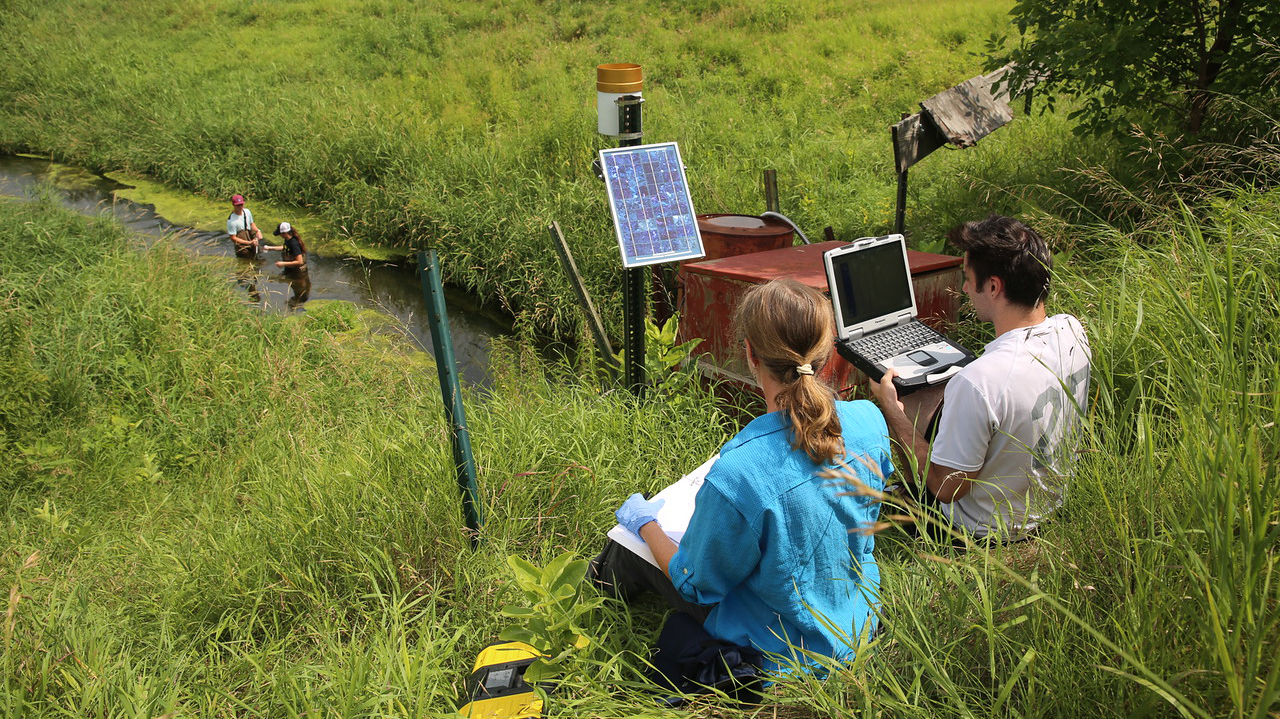
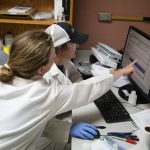
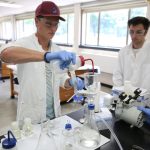
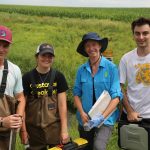
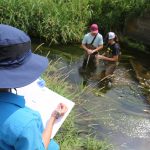
Leave a Reply